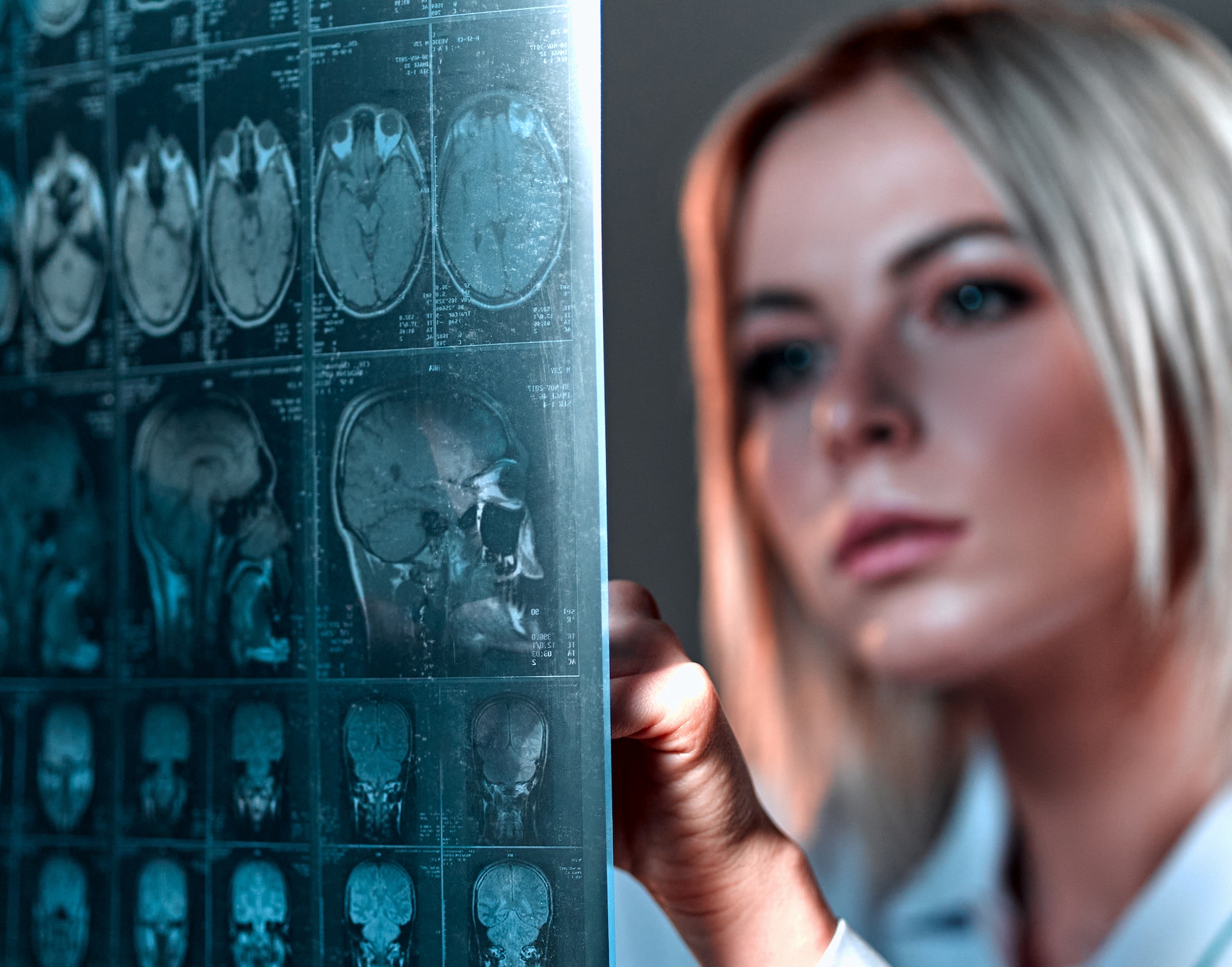Approximately 17,000 new cases of brain cancer occur every year in the United States. They are relatively rare in childhood and adolescence, and then become increasingly more common as people age. Brain cancer accounts for about 2% of cancer deaths.
SYMPTOMS OF BRAIN CANCER
Primary brain tumors usually invade the surrounding tissues without forming a capsule. As the tumor expands and creates swelling around it, symptoms such as headaches, nausea, vomiting,and unsteadiness on the feet often develop. These symptoms may be associated with a loss of coordination of the extremities and with changes in a person’s ability to think clearly. Brain tumors are unique because they do not spread through the lymphatic system, like other tumors do. They can spread through the cerebrospinal fluid, though, and arise in other parts of the central nervous system. It is rare for a brain tumor to spread to other parts of the body.
DIAGNOSIS & TREATMENT OVERVIEW
When it comes to brain tumors, it is crucial to understand that no two tumors are alike. There are a multitude of factors that determine prognosis, such as genetic composition, location of the tumor, age and cognition, and an individual’s general health. There are over 120 different types of brain tumors, which make effective treatment complicated. At present, the standard treatments for brain tumors include surgery, radiation therapy, and chemotherapy. These may be used either individually or in combination.
Brain tumors are usually diagnosed after a CT or MRI scan has disclosed an abnormality. Subsequently, a biopsy is taken, and in most cases the tumor is removed as completely as possible. It is after the biopsy or surgery that the decision of whether or not to treat with radiation therapy is made.
Radiation Therapy is an effective treatment for most primary brain tumors. In some cases, the disease can be cured completely with radiation therapy; in others, radiation can be used to relieve symptoms of the disease and improve disease control and quality of life. The specific treatment approach is discussed at the time of consultation.
Fortunately, many of the new treatment methods, which allow radiation oncologists to better avoid normal tissues, are applicable to treating brain cancer. More focused approaches result in significantly less adverse reactions, both in the short term but more importantly, in the long term.
Learn more about: Radiation Therapy for Brain Cancer.



